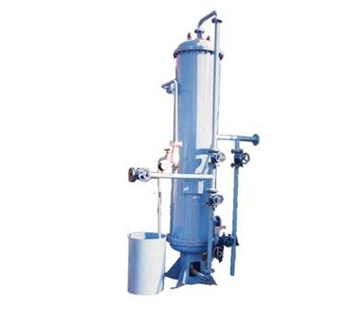 Clear Ion Experts Pvt Ltd
Clear Ion Experts Pvt Ltd
Groundwater dissolves rocks and minerals releasing calcium and magnesium ions that cause water to be hard. These dissolved ions give hard water its characteristics.
Hard water interferes with all types of cleaning tasks. Cleaning problems arise when the cleaning agents do not fully remove dirt and grime. Over time, clothes washed in hard water may look dingy and feel harsh and scratchy. White clothing continually washed in hard water will gradually show a grayish tinge. Dishes and glassware washed in dishwashers using hard water may be spotted when dry. Hard water causes films on glass shower doors, walls and bathtubs. Hair washed in hard water may feel sticky and look dull. Regular soaps combine with dissolved calcium and magnesium to form soap curds or soap scum. Soap scum is difficult to remove from sinks and appliances. Household appliance performance may be affected by hard water use. When heated, calcium carbonate and magnesium carbonate are removed from the water and produce a scale buildup in the hot water heater. A large scale buildup slows the heating process and requires more energy to heat water. Water heaters with large accumulations of mineral buildup will have shorter life spans. Scale deposits also corrode and plug plumbing fixtures and accumulate in other appliances affecting their performance.
Before buying any water treatment equipment, you should know what impurities are found in the water supply. Types and amounts of impurities in your water can be determined by a certified laboratory. The results of the water test will help determine if softening is needed. The water testing may reveal if other water treatment is required. If you obtain water from a private water supply, water testing is your responsibility. Water testing should be done on a regular basis. If a problem is suspected, test more often. Community water supplies are monitored and treated to protect users from health threatening water impurities. Ask your supplier for a copy of the latest water test results. Hard water is considered a nuisance water problem. Hardness removal is not a necessity to protect your health. Water softening is popular because most people prefer softened water for bathing, cleaning and washing.
Manual: There are several types of manual softeners. The operator opens and closes valves to control the frequency, rate and time length of backflushing or recharging. Semi-automatic: The operator initiates only the recharging cycle. A button is pushed when the softener needs recharging and the unit will control and complete the recharging process. Automatic: The automatic softener usually is equipped with a timer that automatically initiates the recharging cycle and every step in the process. The operator needs only to set the timer and add salt when needed. It is the most popular type of softener used. water softneing plants manufacturer
Water Softening Plants | Clearion Experts a well known Water Softening Plants manufacturer in Delhi, If you are looking for best quality Water Softneing Plants and manufacturers in Delhi you are at the right place, Clearion Experts a trusted and largest ISO certified Water Softening Plants Manufacturer in Delhi